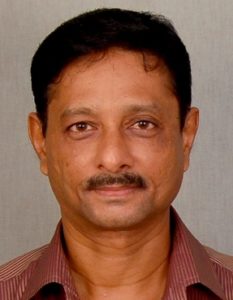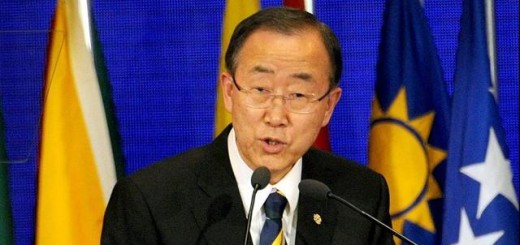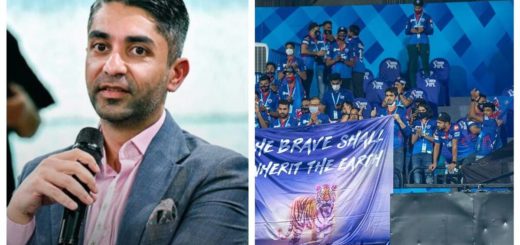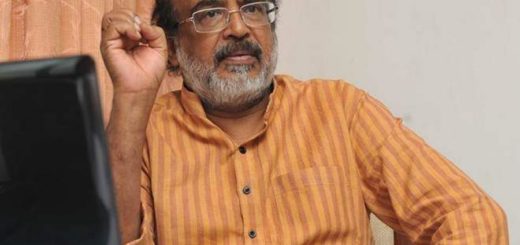Global Cooperation to Combat Coronavirus and Future Epidemics
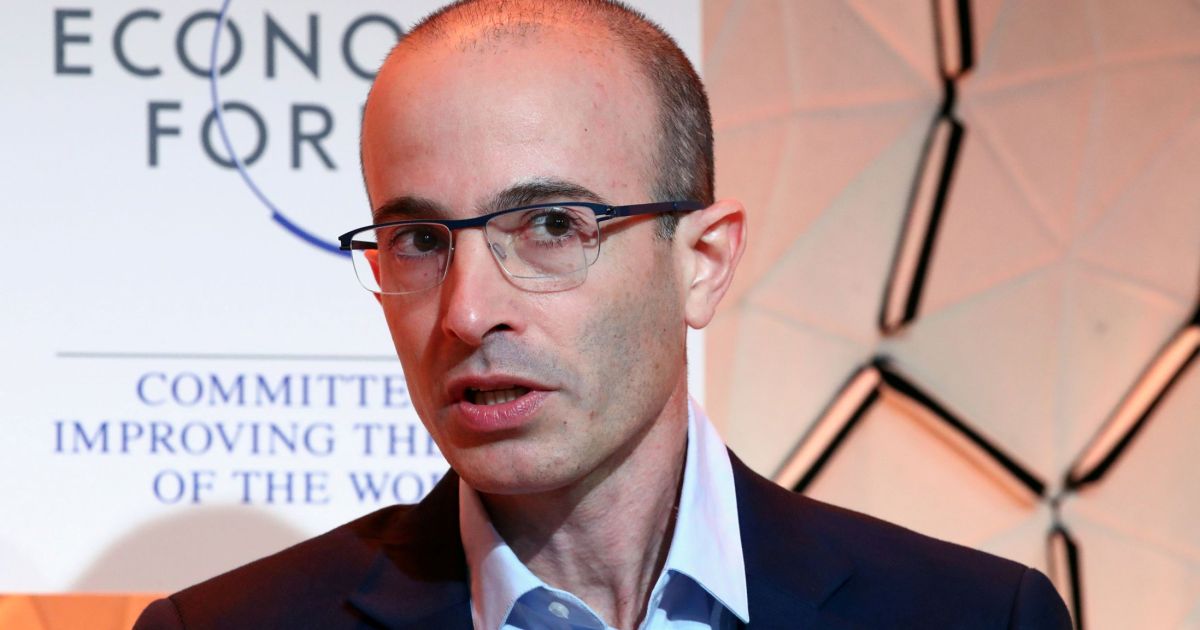
ISAAC GOMES
On Tuesday 14th April, after Prime Minister Narendra Modi announced further extension of the nationwide lockdown by another 19 days till 3rd May 2020, India Today TV conducted a very enriching interview with Professor Yuval Noah Harari, Israeli futurist and a professor in the Department of History at the Hebrew University of Jerusalem. The topic of discussion was Global Cooperation to combat Coronavirus and future epidemics.
The Professor felt the world is in a better situation than any previous pandemic in the past history – for example Black Death. In the case of COVID-19, the level of mortality is much lower than Black Death which struck in the Middle Ages. But most importantly we have all the scientific knowledge and the technological tools to stop COVID-19 pandemic. When Black Death struck, nobody understood what was happening and killing people and how it could be stopped. People wondered whether it was a punishment from God or beyond one’s power to change. Today in contrast we understand what is happening. It just took two weeks to identify the virus responsible for the disease, to sequence its entire genome and to develop reliable tests. So we are no longer blind and powerless. We have the power to manage this crisis. The big question is whether we have the wisdom to use our power correctly. So far our response has not been ideal. What is lacking is a United Global Plan of Action of how to deal with:
- The pandemic itself and
- The economic consequences.
He said it is not too late to unite the world in this struggle.
The huge problem today is we do not have a leader to organise global financial response. He said Coronavirus in Italy cannot consult the Virus in Spain on how to infect people. But human beings can consult on how to arrest the spread of the Virus. Doctors in one country can help another country with their findings or one country can send medical equipment to another country which is short of the equipment. If we do not use this human capability, then our ability to deal with the crisis is much diminished. Unfortunately we are now paying the price for the rising international tension of the last few years. When Ebola struck in 2014, the US led the global effort to stop the epidemic quite quickly. Similarly, in the economic recession in 2008, US led world economies to have a common plan. Now in the face of COVID-19 attack, the US has basically abdicated its position of a global leader. Instead of humanity first, we are witnessing “America First.” Indeed America has come first in the world – being the leader in the highest number of infection (over six lac persons) and death (over twenty-five thousand persons) from COVID-19. He said America has failed to give leadership to the world to combat the Virus as it has fallen flat on its face, mainly from trust deficit. Because of this, peoples of the world have lost confidence both in America's leadership and its competence to counter a pandemic. Now there is a leadership vacuum and no alternative leader has emerged who can unite human kind to combat COVID-19. To develop a vaccine, it is critical that countries pool their information together, and have the ability to trust the information received from other countries. He felt that post Coronavirus, a new world leadership might emerge from East-Asian countries which have shown proven preparedness to combat the Virus. In this context he opined it is not necessary that totalitarian / Dictator countries like China dealt swifter and better with COVID-19. The fact is even democratic countries like South Korea, Taiwan and New Zealand did very well and in fact better, to control the pandemic, in a much more transparent manner.
To deal with the global economic crisis brought about by the Virus, it is very important to have global cooperation. The US can have a rescue package of two trillion US dollars. But many countries from India to Brazil do not have this kind of financial resources. So until we have a global economic plan, we might face global depression, entire countries could collapse and this could destabilise the rest of the world.
He said had China been a democratic country, where information could flow freely without the fear of being punished, the world might have received the data from China after the initial attack of COVID-19 there. This information could have helped the virus from spreading worldwide and become a pandemic. Now to stop this pandemic, we have to realise we cannot depend on one powerful country, be it US or China. That would be dangerous and one must be wary of promoting totalitarian regimes. We need collective human leadership in which many countries of the world play a part and for this to happen we need to form Global Solidarity.
We must realise the real problem is not the Virus. The problem is the internal demons with humanity itself, a rise of hatred for countries or particular minorities; and finger-pointing by different countries for the spread of the virus. If we allow this kind of hatred to spread, it will prevent us from dealing with COVID-19 and will also poison international relationship for years to come. Instead of leaning on to one very powerful leader which is very dangerous, there is an urgent need to develop Global Solidarity not only to overcome the current crisis but to overcome larger crises like Global Climate Change.
He pointed out some short-term emergency measures being adopted by some governments like China and Israel. For example, surveillance by closely monitoring people’s smartphones, making use of hundreds of millions of face-recognising cameras, and obliging them to check and report their body temperature and medical condition. By this the authorities can not only quickly identify suspected Coronavirus carriers, but also track their movements and identify anyone they came into contact with. A range of mobile apps warn citizens about their proximity to infected patients. He said the danger was these measures could become permanent and severely compromise a citizen’s privacy in the name providing healthcare. If we are not careful, after COVID-19, deployment of mass surveillance tools might continue in countries that have so far rejected them, more so because it signifies a dramatic transition from “over the skin” to “under the skin” surveillance. Even when infections from Coronavirus are down to zero, some data-hungry governments could argue they needed to keep the biometric surveillance systems in place because they fear a second wave of Coronavirus, or because there is a new Ebola strain evolving in central Africa… there will be no dearth of excuses for maintaining surveillance. An alert citizen should opt for both privacy and healthcare and never compromise privacy.
It is crucial to remember that just like fever and a cough, anger, joy, boredom and love are biological phenomena. The same technology that identifies coughs could also identify laughs and seething anger. If governments start harvesting our biometric data en masse, they can get to know us, our feelings of joy and anger, far better than we know ourselves. Then they can not only predict our feelings but also manipulate them including our choices. By making wearing of Biometric Bracelets mandatory, the governments can continue with surveillance to assess whether a citizen is for or against them, from the data analysis of one’s feelings of joy, anger and hidden emotions.
He also said even religious leaders, including religious zealots, have realised that only advanced scientific research can save the world from this pandemic so much so they have voluntarily agreed to keep the places of worship closed, to prevent community infection of the Virus. He pointed out that religious leaders have neither been able to stop the pandemic nor protect their flock. They are at their best when they make excuses for failure to keep promises/predictions. He cited a case in his country Israel where elections were held two months ago. The leader of a religious party made an election promise that if his party was voted to power, it would be ensured that no one is infected with the Coronavirus. It so happened that just before the elections, he tested positive and he was also Israel’s Health Minister. This he said was a classic case of a religious leader failing to protect even himself from an epidemic and thus letting down his followers. He felt if given a choice between Science and Religious Leaders, with COVID-19 experience people were more likely to choose Science.
On getting the trust of citizens (where USA failed miserably), he said our political leaders must tell the truth. If they have been spreading disinformation throughout the year, at times of emergency like COVID-19, they must admit they have been telling lies and come out with facts. People will change and their trust level will increase. The good thing about this virus is that everybody, almost everybody, is leaning to science. This crisis will enhance better scientific education and more trust in scientific authority, not just about this pandemic but also about other matters like Climate Change.
On whether COVID-19 will impact global balance of power, whether it will strengthen international cooperation or whether it will strengthen forces of nationalism, he replied that the future depends on the decisions we take. If each country decides to work on its own, blaming other countries for the pandemic, trying on its own to get the medical equipment, competing with other countries by not sharing information, then it will make it more difficult to stop the pandemic and poison international relations for years to come.
If on the other hand, countries choose to cooperate, to distribute medical equipment and knowledge in a fair way between rich and poor countries and share information, to even send medical help from one country to other, all these will make it easier to deal with the current crisis and create a much better international system for the future. We need Global Solidarity and not nationalistic competition.
On whether there will be a big setback to globalization, he said the world has gone too far with integration. Even a big country cannot produce all the products it wants to. For example if France develops a vaccine for COVID-19, other countries like the US, India and China will hope France gives them the vaccine, without going in for their own production.
Regarding future job market, he said nobody has any idea how the job market will shape up say in 2030-2040. Opportunities for online education/jobs could open up a lot. For example a professor from India can now teach in his university in Israel without the need to be physically present in Israel. He said there could be a tilt toward Gig Economy i.e. labour market which is characterised by prevalence of short term contracts or freelance work as opposed to permanent work. He said entire industries like textile, tourism, etc might collapse or get altered. Increased automation with robotics could shift major textile manufacturing bases from India and Bangladesh to their countries of origin in Europe or USA, as robots do not need to be paid any salary or social benefits. So a lot will depend on policy decisions of governments to protect the rights of organised labour, of small businesses and traders instead of looking after the interests of large corporations and their greed.
On Nationalistic Isolation, he said we would be poorer, more miserable and even less healthy. Because one cannot stop a pandemic, just by closing a country’s border and stopping all flights. In the Middle Ages when there were no aeroplanes or large ships, in about ten years Black Death spread from China to India to the Middle East to Europe. So the real antidote is not isolation but global cooperation by quick sharing of information among different countries, by working together to develop medicines and vaccines and by alerting countries if some epidemic or unusual development takes place in one country. If we learn to cooperate like this, we will be able to combat not only future epidemics but also other crises like Climate Change.
Regarding India, he said he was not an expert on India as he does not have adequate data on the country. But he felt India has a humongous challenge on its hands, as it was not economically as strong as the US, Japan and Germany. It badly needs to improve its health sector. He recalled that when Spanish Flu struck the world in 1918-19, India had the highest death toll (12-17 million citizens about 5% of its population) in the world. He felt during this pandemic, India must work in solidarity with different communities by connecting with communal and religious traditions.

